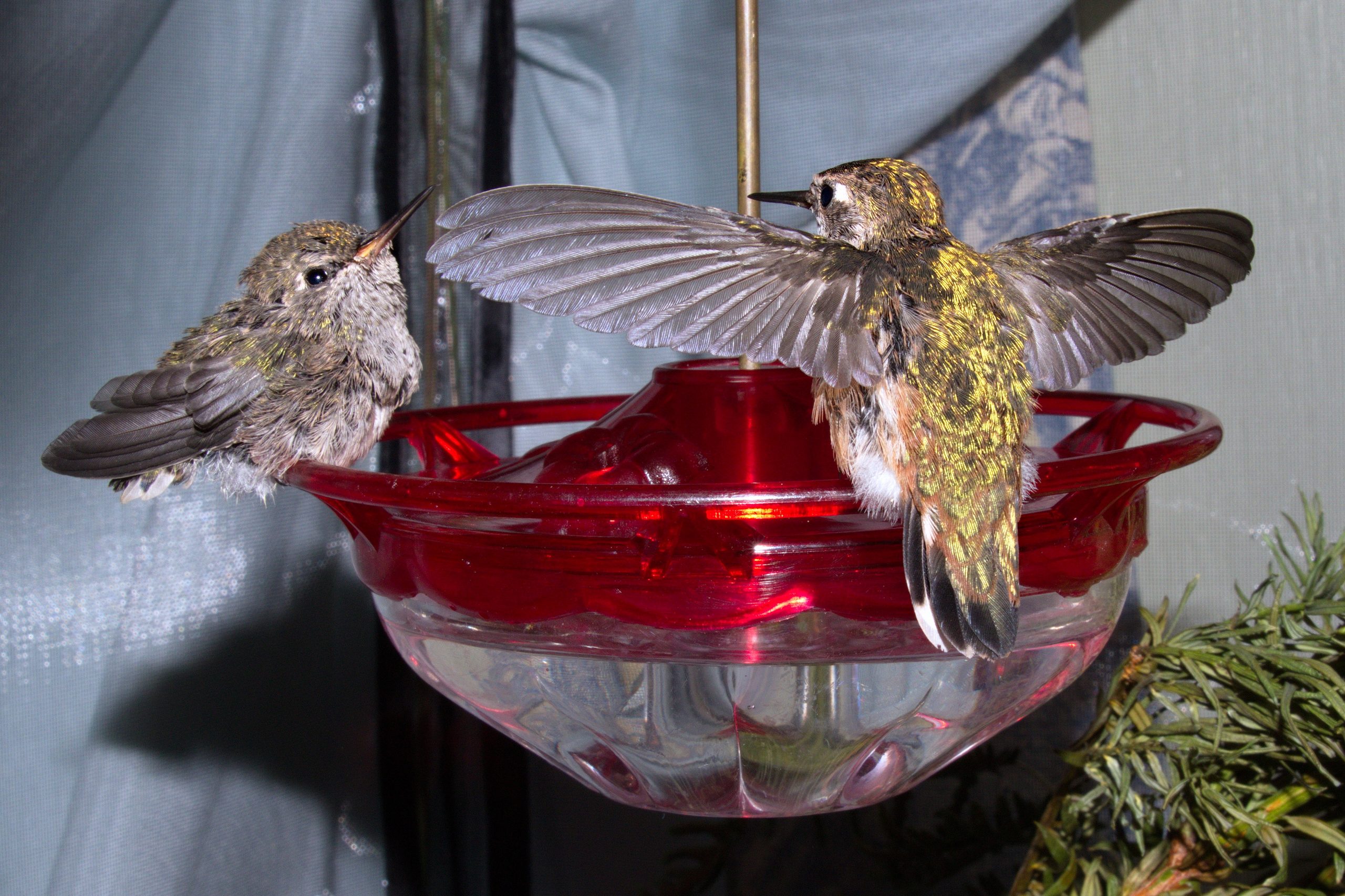Support Us
Since 1979 more than 140,000 animals have been treated by Wildlife Rescue.
Thanks to the support of individuals like you, Wildlife Rescue can provide a lifeline for animals in distress.
The best solution to fill your feeder with is a 1:4 solution of refined white sugar to water!
Type of sugar: Non-organic, cane, or beet sugars are the only sugars, that should be used for your nectar. The sugars must be pure white to ensure the molasses has been removed. Molasses is high in iron and can be toxic to hummingbirds. Sugar substitutes and honey can be just as dangerous for them.
Type of water: Like sugar, purity is preferred. Springwater is preferable, but it is also okay to use tap water.
Please don’t add red dye to your hummingbird feeders. Red dye is unnecessary and potentially harmful.
While no solid research exists to prove that red dye is harmful to hummingbirds, it’s completely unnecessary. Hummingbirds are attracted by the red colours of the feeder itself, not the nectar inside.
Artificial nectars have little if any added nutritional value over sugar water. To avoid causing any possible harm, stick to the 1:4 formula of white table sugar to water, and let the red feeder parts do the work of attracting hummingbirds.
Hummingbirds don’t hibernate in the traditional sense, but they can go into an energy-saving mode called “torpor” on cold winter nights.
During this state, hummingbirds are vulnerable to predator attacks. Please supervise any pets outside to prevent injuries.

Feeders should be cleaned every 3-5 days, more frequently in hot summer weather. Wash out with hot water and a bottle brush, make sure to scrub the flower feeders as well! Re-fill with fresh sugar water. Clean feeders once a month with a 10% bleach solution, rinse copiously and let dry fully before use.
If your schedule does not permit you to stick to a cleaning regime, try attracting hummingbirds to your garden with bright native flowers instead!
A hummingbird with a swollen tongue is a tell-tale sign of Candidiasis. Candidiasis is a deadly fungal infection that causes a hummingbird’s tongue to swell, making it impossible for them to eat. Eventually, it may die of starvation. This disease is spread through poor hygiene or by consuming too much sugar or carbohydrates. Sticking to the 1-4 ratio of sugar to water will prevent feeding hummingbirds nectar that is overly sweet, and cleaning your feeder regularly will prevent dirty feeders from transmitting the disease.
If you find a hummingbird just sitting at a feeder with its swollen tongue hanging out of its mouth, it needs help! Call our Support Centre for assistance. If the bird can easily be caught, please bring it in for help. Take your feeder down to prevent the further spread of disease.
Hummingbirds found grounded need help. Other signs of distress include weakness, soiled feathers, tongue hanging out and obvious injuries. Call Wildlife Rescue at 604-526-7275 if you find a hummingbird displaying one or more of these signs.
Call your local wildlife rehabilitator for assistance.